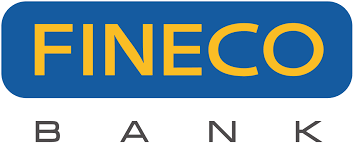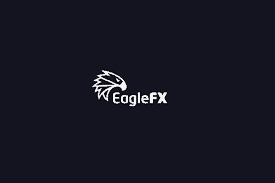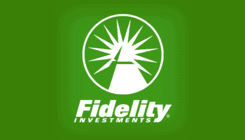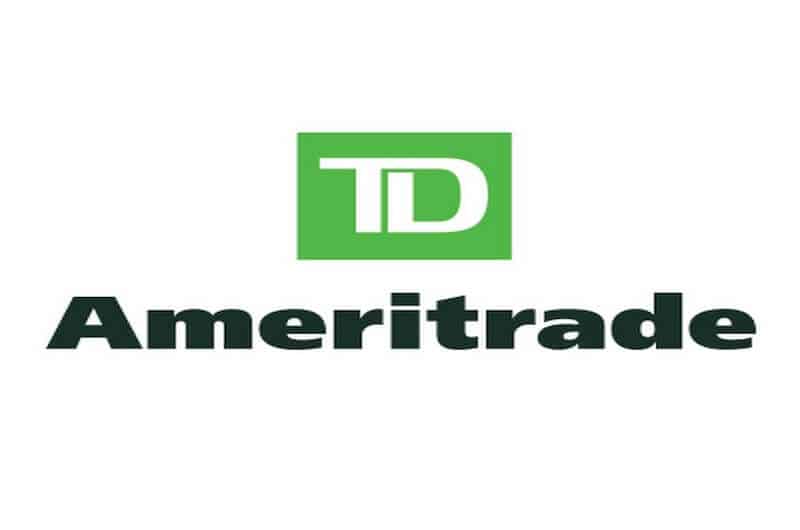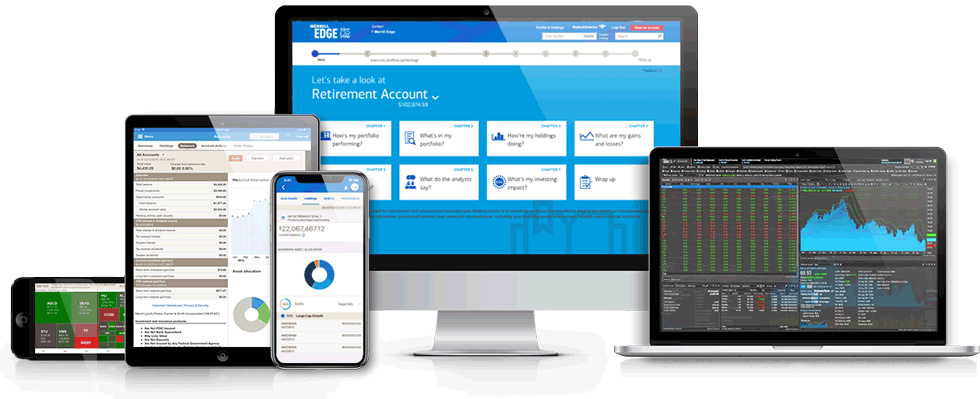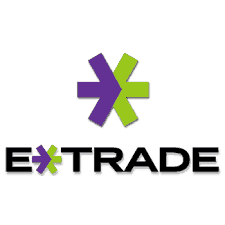Best Online Stock Brokers for Beginners 2026
A typical savings account currently posts between 0.5% and 1.5% in annual returns. This explains why more and more people are shunning traditional savings accounts and turning to the more lucrative financial markets.
The good news is that today there are many online stock brokers that have simplified the process. They present you with all the necessary trading tools, training, and educational resources. They also make it possible to place a trade at the click of a button while charging very little fees – and some only charge when your trading volume reaches a significant level.
In this article, we have reviewed some of the best online stock brokers of 2026, and detailed everything you need to know about investing in shares and stocks – from getting started to strategies, and more!
Best Stock Brokers List 2026
If you don’t have time to read our guide in full, here’s a quick look at the very best stock brokers on the market today.
- Fineco Bank – Best stock broker long-term investing
- EagleFX – Good stock broker in the US
- Stash Invest – Excellent mobile broker
- Robinhood – Wide range of stocks
- Fidelity Investments – Renowned US broker
- TD Ameritrade – Impressive trading platform
- Charles Schwaab – Established in 1973
- Merril Edge – Competitive commissions
- E-TRADE – Excellent research materials
-
-
Best Stock Brokers for Beginners 2026:
If you are new to investing, then we would suggest using one of the following online stock brokers, most of which also offer investing apps to facilitate your trading experience.
1. Fineco Bank - Best Stock Broker for Long-term Investing
Fineco Bank is an Italian bank and brokerage firm that operates across Europe and in the UK. Since launching in 1999, the bank has gained over 1 million customers in Italy alone and has frequently been compared to Charles Schwab, the venerated US broker. Fineco Bank's trading arm is regulated by the Bank of Italy and the company is listed on the Milan Stock Exchange, so it's considered highly safe.
While Fineco Bank has a lot to offer for stock trading, this brokerage firm really stands out for long-term investors. You can invest in more than 10,000 shares from the US, UK, Europe, Japan, and other major exchanges around the world. The broker also has a selection of thousands of ETFs. For traders in the UK, it's possible to open a tax-privileged ISA (Individual Savings Account) in addition to a standard brokerage account.
Fineco Bank requires a £100 minimum deposit to open an account and charges a simple 0.25% fee based on the value of your portfolio. Once you have more than £250,000 invested, your fee drops to just 0.15%. There are no share dealing charges for buying and selling ETFs and no withdrawal fee if you decide to transfer your funds out.
It's worth noting that Fineco Bank also has a lot to offer active traders. This broker offers stock CFD trading with no commissions and no additional spreads. Fineco Bank's PowerDesk trading platform is one of the more comprehensive desktop trading platforms on the market today. Both traders and investors alike can access Fineco Bank's mobile app for iOS and Android to manage your account on the go.
You can join Fineco today by clicking the button below and use the code FIN100-AD to get 100 free trades!
Our Rating
- 100 free trades
- Simple 0.25% fee for long-term fund investing
- Trade over 10,000 shares from around the world
- Not available in the US
Your capital is at risk2. EagleFX - Best Stock Broker for USA Customers
Founded in 2018, EagleFX provides traders across the globe with a platform where they can trade shares and stocks, currency pairs, digital coins, commodities, and global indices.
The online brokerage was launched by a team of experienced programmers and many market experts. They have leveraged their experience and knowledge in the industry and also sourced all the necessary tools and safety protocols in order to provide clients a secure connection to the markets. EagleFX charges competitive spreads and offers high leverage ratio, making it one of the best STP brokers in the market.
Our Rating
- EagleFX is an ECN/STP broker, removing the conflict of interest between brokers and traders
- The broker offers extremely competitive spreads
- EagleFX offers an extensive selection of 31 cryptocurrency pairs
- EagleFx does not offer stocks/ETFs trading
- The extent of tradable assets is limited
3. Stash Invest - Get $5 Free when you Sign up
Stash Invest is a mobile based online brokerage that lets you invest and trade different financial assets including shares and stocks using your mobile phone. The stock broker, categorised among the spare change investment apps, allows their clients to automatically invest as little as $5.
Stash Invest provides its clients access to both the NYSE and NASDAQ, subsequently allowing you to diversify your portfolio. One of Stash Invest's greatest strengths is its trading and account management fees that start from $1 per month for traders with an investment capital of less than $5,000.
Our Rating
- Start investing with just $5
- Trade on-the-go via the mobile app
- Low fees of $1 per month
- Number of shares listed not as extensive as other brokers
4. Robinhood - Good Stock App Alternative
Our Rating
- Zero-free stock trading
- 5,000+ stocks listed
- Access to ETFs and bonds
- Minimum deposit is $200
Note, if you’re from the UK then visit our UK Stock brokers page here instead.
US Brokers for Mutual Funds and Securities
Below you will find a list of the top brokers offering their services for retail investors in the US.
1. Fidelity Investments
Fidelity is a global financial services company that has been in operations since 1946. Its headquarters are in Boston. The company has great offers all-around from its services, tools, and value. The company manages more than $2.5 trillion in assets. This makes it a massive broker with the ability to use its scale to provide low trading costs and deliver excellent customer experience and support.
The company offers a wide range of products and services including retirement plans, mutual funds, ETFs, annuities and 529 plans among others. It also has a financial advisor division, Fidelity Investments and a Robo-advisor service known as FidelityGo.
With a Fidelity trading account, you can sell and buy stocks, mutual funds, and other securities. It also provides charts where you can observe the performance of your investments over time to see if you need to reassess or they are effective. The trading platform provides some education and research tools to help you with investing, an option to test your strategy, videos and articles to help you familiarize yourself with trading.
The platform offers a robust online experience for desktop and mobile users with availability on all android devices, IOS, and iPads. The company offers excellent customer support with its automated virtual assistant. On the mobile app, you can connect with a representative at the click of a single button. You can also use its branch locator tool to find the nearest physical location.
Our Rating
- Fees are considerably low
- Excellent trade executions that generate price improvement in stock and options trades
- Large selection of research providers
- Fidelity’s extensive menu system can make it difficult to find a particular tool
- Relatively high broker-assisted trade fee
- You might require the use of multiple trading platforms to access all of Fidelity’s tools
2. TD Ameritrade
TD Ameritrade is one of the largest and oldest names in online stock brokerages with millions of customers, 3.5 million of which were brought over from last years' acquisition of Scottrade. The platform has several platforms for investors to choose from, from their basic site to the Thinkorswim designed for traders who are very active.
However, the platform is also among the priciest with a flat fee of $6.95. Is the price justified considering there are other trading platforms offering only half as much? Considering the advanced tools and research possibilities it offers, the prices may be roughly in line with what major brokerages offer, although it's not the cheapest.
The trading platform has no minimum opening deposit, this makes it a great option for new traders who want to start investing immediately. The fees are also pretty reasonable considering it is for any stock transaction and there are no maintenance fees.
The company offers advanced trading tools and mobile applications with its Thinkorswim being voted for the top trading platform several times. Their mobile applications can be accessed using Android, iPhone tablets or apple watch. Also, TD Ameritrade provides the option to ‘graduate’ into a more advanced platform any time you feel like you require more in-depth analysis.
The users also have round the clock access to customer care, either by phone or email. This comes in handy when you need quick answers or you are stuck. You can also link your brokerage account to your TD Ameritrade bank account if you have one, or you can open one to simplify transactions.
If you are new to trading you might find that the Thinkorswim App can be a little bit intimidating at first, but once you've learned your way inside the program it becomes the best stock broker for beginners.
Our Rating
- Advanced research and analysis tools for experienced traders
- Education resources for new traders and advanced investors to level their knowledge
- No minimum deposit to open an account
- Above market per trade fee at $6.95
- Multiple apps and trading platforms may bring around confusion as they have very different target audiences.
- You may need to use more than one trade system to find all the tools you require
3. Charles Schwab
Charles Schwab is among the most recognizable brands among investors. It was founded in 1973 and is home to over 11.6 million active brokerage accounts. It is regarded as the first company to use a discount brokerage model because after commission prices were deregulated in 1975, it adopted a model offering lower commissions than investors were used to paying.
This trading platform also offers different platforms aimed at different levels of investor experience. It offers a desktop ‘StreetSmart Edge’ trading platform for advanced traders, a streamlined web trading tool called ‘Trade Source in addition to its basic browser-based solution. Charles Schwab also offers mobile apps for Windows, IOS and Android platforms with the ability to place complex trades.
Charles Schwab offers a combination of low fees, advanced trading tools, extensive investment options and $0 account minimums to make it one of the most preferred stock brokers for Beginners and veteran investors alike. It also provides high-quality in-house and third-party research complete with live streaming events and market commentary.
As most large brokers do, Charles Schwab offers round the clock customer care in addition to its vast physical branch network. Clients can get help in person at any of its 340 branches in the United States.
Our Rating
- The platform offers advanced trading tools in its StreetSmart Edge platform and beginner-friendly tools in its basic website
- The web platform is optimized for small screens in such a way that it offers the same functionality in mobile web and native app platforms
- The platform’s commissions are lower than any other brokers in the same category
- Charles Schwab only provides just 24 months of transaction history online
- Different trading platforms may make it hard to keep track of everything
- A large number of reports and features may confuse new traders or feel overwhelming. It takes some effort to find the features you need
4. Merrill Edge
Merill Edge is an extension of Merill Lynch which is now owned by Bank of America. The platform is known for its reliable and responsive customer service but it is its synergy with Bank of America that makes it more interesting.
Bank of America customers can view the accounts together, transfer funds instantly from either and manage both accounts together.
Compared to other brokers such as TD Ameritrade and ETRADE, Merill Edge is evenly priced with its flat fee of $6.95. thanks to promotions and rewards programs, the platform is often least-expensive for those with Bank of America accounts.
It has great customer care and support in addition to Merill Edge advisors present in the BoA branches during normal banking hours.
Our Rating
- Bank of America integration works to those who have both accounts advantage
- Self-directed investing options
- No surcharges for stocks trading under a dollar
- High costs and fees
- Dated interface
5. E-TRADE
ETRADE is an online broker that was founded in 1982. It is highly advertised and fairly well known in and outside financial circles. It is however best known for its user-friendliness on all browser, mobile and desktop platforms. With the E-Trade 360, you can view everything in your account in one page, as well as make trades.
For advanced investors, E-Trade provides advanced trading tools and extensive market research. It also provides tons of user educational tools and guidance for new investors.
This trading platform is however not the most expensive or the cheapest for that matter. For the first 30 trades per quarter, you will have to pay $6.95, just like in Merill Edge and TD Ameritrade, after that, you are given a discount to $4.95 per trade.
The platform provides great customer service and support in addition to the online trader community that allows you to chat with other traders.
Our Rating
- High quality integrated third-party research offerings
- One of the best mobile trading app
- Active online trader community that lets you know what others are doing
- No virtual trading to help new traders practice without using any money
- High costs and fees, at least for the first 30 trades
What is a Stock Broker?
When the uninitiated think of a stock broker, they often imagine a Wall Street trader wearing a pin-stripe suit, buying and selling paper stocks at the top of their voice. While that was once true, today traders invest in the stock market through an online trading platform that allows you to buy and sell shares at the click of a button.
The role of the broker is to essentially match you up with other buyers and sellers. In return, they’ll charge a commission, which is otherwise known as a trading fee.
The reason that you need to use a stock broker to invest in a company is that they have the legal means to facilitate the buying and selling of stocks on your behalf.
They perform everything from executing trades for clients, distributing dividends, and even processing deposits and withdrawals.
When it comes to paying for your trades, the best online stock brokers will accept a number of everyday payment methods. At the very least this will include a debit or credit card, and sometimes an e-wallet like PayPal. While some online brokers will charge you a fee to deposit and withdraw money, others do not.
In terms of pricing, stock brokers will offer two prices on all of the stocks they list. This is the ‘Bid Price’ and the ‘Ask Price’. In layman terms, the bid price is the price you get if you are selling your stocks, and the asking price is the buying price. The difference between the two is known as the spread – which is essentially a fee charged by the broker.
Note: We can’t stress how important it is to only use a reputable online broker. Always research the credentials of the broker, such as whether or not they hold any regulatory licenses.How do online stock brokers work?
When you’ve chosen what you consider to be the best online stock broker that you like, you will initially need to open an account on their trading platform. You’ll need to provide some personal information, such as your name, address, date of birth and social security number. Moreover, as per financial regulations, you will also need to provide some ID (such as a passport or driver’s license).
Once you are all set up, you’ll need to head over to the stock market section, and search for the company that you want to buy shares in. Next, you then need to decide how much you want to invest. Don’t worry about buying a fixed number of shares, as online stock brokers allow you to buy fractional shares equal to the amount you want to invest.
As soon as you place your trade, you will then be the proud owner of your chosen stocks. At this point, you don’t need to do anything until you decide to sell the shares, which you’ll do via your online stock broker account. In the meantime, any dividends that your stocks pay will be paid straight into your stock broker account.
How do Stock Broker Fees Work?
It is important to remember that in the vast majority of cases, you will need to pay fees when you use an online stock broker. The reason that we say the vast majority is that the exception to the rule is US-based Robinhood – which is essentially a zero-commission stock broker.
When you do pay fees, this can come in a number of different ways. Usually, you will pay a fixed trading fee every time you buy or sell a stock. Cheaper stock brokers such as Ally Invest charge just $4.95 in this respect.
Alternatively, other low fee stock brokers like Stash Invest will simply charge a monthly fee for using its trading platform, which amounts to just $1. This is more beneficial if you plan to trade frequently, rather than paying a fixed fee for every trade you make.
An additional way that you might be charge is via the spread. For example, while no commission stock brokers will not charge a fixed or monthly fee to trade, they instead make their money on the difference between the ‘Bid’ and ‘Ask’ price.
What Types of Accounts are There?
If you’re just a regular trader that is looking to use your own savings to trade, then you’ll simply need a traditional cash account. This means that you can only buy and invest stocks with the money you have in your stock broker account.
A margin account is where an online stock broker allows you to trade with more cash than you have in your balance. As you are effectively borrowing the funds from the stock broker, you will need to pay a small amount of interest on a margin account.
If you’re interested in buying and selling options, then you will likely need a specialist options account with your chosen stock broker. This is because options trading is considered a higher risk in comparison to simply buying traditional stocks.
Some stock brokers will allow you to open an IRA account. This is only relevant if you are looking to invest for your future retirement fund. In doing this through an IRA account, you will be accustomed to a number of tax benefits.
Factors to consider when choosing an online stock broker
- Account minimum – Most brokers today have no required minimum starting balance, which is great for new traders and those with restrained budgets. However, some accounts require from 500 dollars up to 10000 dollars as starting balance. This can help you take options down from your stock broker list.
- Fees or commissions – Before starting out, ensure you are aware of all the fees that your platform charges, and the percentage commission they take upon buying or selling. Some trading platforms may not charge fees but that does not mean everything is free.
- Availability of stock analysis tools – Does the stock broker provide stock analysis tools? Are they free? – some brokers offer the analysis tools for free, others at a fee and some have limited resources for analysis. If you have other analysis tools, you may choose a broker with less if you like their other features.
- Customer service and support – the ability to contact customer service is an important factor traders need to consider when choosing the best online broker. if overlooked, it can prove to be very frustrating later on when you are in need of assistance.
How We Rank the Best Stock Brokers?
If you’ve read our guide up to this point, then you’ll know just how competitive the online stock broker arena has become.
On the one hand, this is great for you as the consumer, as you have heaps of trading platforms to choose from. On the other hand, it can be really difficult to know which platform to pick! That’s why we decided to independently test and review all of the brokers that we recommend.
To make the best stock broker comparison, there are a few factors to consider. Here’s how we ranked them:
- Fees and commissions
- Number of stocks and shares to invest in
- Offers and promotions
- Research and analytics tools
- Trading platforms
- User-friendliness and customer support
- Number of markets offered to the trader
What to Look for When Choosing a Broker?
Fees: You need to assess how the stock broker charges its fees. They might impose a fixed fee every time you trade, a monthly or annual fee, or they might charge you in the form of the spread.
Reputation: Ideally, you want to be choosing a broker that is highly established, and with an excellent reputation in the public domain. You should also check to see what regulatory licenses the broker in question holds.
Security: Always choose a broker with excellent security safeguards. This should include enhanced login controls like two-factor authentication (2FA).
Number of Shares: You will want to choose a broker that offers a huge list of stocks and shares. Not only should this cover the US markets, but, if possible, foreign markets too. As an added bonus, the broker will also list ETFs, mutual funds, options, futures, cryptocurrencies, and indices.
Payment Methods: Try to choose a broker that offers a number of different payment options. This should cover debit/credit cards, bank transfers, and e-wallets like PayPal or Skrill.
What to Avoid
Hidden Fees: Always avoid an online broker that is not transparent on its fees. You might find that while the stock broker claims to offer ‘Zero Commission Trades’, you might end up paying huge fees via the spread.
Unregulated Broker: Under no circumstances at all should you ever open an account with an unregulated stock broker. Ultimately, if anything went wrong, you could end up losing your entire balance.
High Withdrawal Fees: It is all good and well when online stock brokers offer zero-fee deposits, but what about when it comes to withdrawing your funds back out? Avoid brokers that charge really high withdrawal fees.
Poor Customer Service: There might come a time where you need to contact customer support. Whatever the issue might be, never choose a broker that offers poor support. In fact, you should try to use a broker that offers 24/7 support across both live chat and telephone.
Stock Broker Apps
If you are a very active trader and want to trade on the go, we would strongly recommend a stock trading app. There are a plethora of stock broker apps in the market today both for U.S. and UK traders, including the Robinhood trading app.
For a full list of our recommended apps and tips to choosing a reliable platform, be sure to read our guide to the top 5 stock trading apps for 2021.
Stock Broker Education
If what you’re looking for is to become a stock broker yourself, there are plenty of stock broker training programs and courses you can take.
Typically, you will need a high school diploma and a bachelor’s degree in finance or business administration to become a stock broker.
A finance degree will prepare you to work as a stock broker by learning the foundations of economics, financial forecasting, and planning. Typically, degrees will last between 3 and 4 years, depending on your country of residence.
Although a major part of your stock broker education will come from studying, most of your learning will be achieved through brokerage experience. Employers tend to hire stock brokers with at least 1-3 years of experience. You can get started with your stock broker job by applying for a free stock broker internship which will allow you to gain knowledge and learn the ropes.
For more information on this topic, we recommend giving the following articles a read:
Bottom line
Choosing the best stock broker can be a hard task to handle especially in this technology era where you are spoilt for choice.
It is important that you consider several factors including the fees and commissions, analysis tools, minimum amounts required to open an account, and your investment style. Ensure that the broker is legitimate, especially if the fee is too good to be true.
Remember, your first broker won’t necessarily be your broker for all your life, but if you choose the right one, you may have a chance to make money as an investor.
Glossary of Stock Broking Terms
StockA stock is a representation of a company’s equity. When a company wants to raise capital, it issues stocks to the public. It is the aggregation of the total stocks owned by one individual that inform their shareholding of the company.
SharesA share is an indivisible unit of capital that expresses the ownership relationship between a shareholder and a particular company, mutual fund, REITs or limited partnership. A share indicates a portion of ownership (claim) that one has on a company or fund.
DividendDividend refers to the portion of the company’s profits that is distributed to its stockholders. It can be on a quarterly or annual basis.
Bull marketA bull market is an economic condition where the stock markets are in an extended period of consistent increase in stock prices.
Bear MarketA stock market is said to be bearish if it is involved in extended periods of continuous price decrease of the stock prices.
Stock ExchangeA stock exchange is an institution or a platform where shares and stocks and a host of other money market instruments are traded.
Return On Investment (ROI)The return on investment is the profit you make from trading in or investing in shares and stocks of a particular company. It often comes from selling the investment at a higher price than was originally bought or benefiting from dividends and other profit-sharing schemes as a result of owning and holding onto a particular investment.
BrokerA broker may be a person or entity that engages in the buying and selling of different types of investments on behalf of other individuals or entities at a fee (or commission).
Day TradingDay Trading is the practice of buying a money market investment product and selling it as soon it reports price increase or loss, within the same day. Traders engaged in day trading are referred to as “day traders” or “active traders”
ArbitrageArbitrage is the act of buying and selling security at different stock exchanges or markets with varying prices. If, for instance, stock ABC sells at $11 on one exchange and $11.75 on the other, arbitraging involves buying from at the low price exchange and profiting by selling it at the higher-priced exchange.
IndexA stock index is a statistical measure of the change in the stock and securities market. It comprises a hypothetical portfolio of different companies whose change in prices is calculated to determine market performance.
Initial Public Offering (IPO)The Initial Public Offering refers to the sale of company stock to the public for the first time. It is the act of taking a company public and is highly regulated by such financial regulators like the SEC in the USA and FCA in the UK.
OptionsOptions are derivative financial instruments whose price is based on the value of their underlying tradable security like shares and stocks. They are contracts that give the holder an option to buy or sell the underlying asset at a later date. Unlike futures, an options contract holder has the choice to buy/sell or not.
Call optionsThis is an options contract that gives the holder an option to buy the underlying asset before the expiry date.
Sell optionsThis option gives its holder the choice of selling the underlying asset before its expiry date
Mutual FundsA mutual fund refers to a company that pools funds from different investors and invests these funds in stocks, bonds, and other financial market securities. They then distribute the capital gains from these invests to their members.
Over-the-CounterThe process through which stocks for companies that are not listed with accredited stock exchanges like the NYSE are traded. It is a broker-dealer network for unlisted stocks for companies that do not meet listing requirements set by the organized exchanges.
OverboughtA stock is said to be overbought if it is traded excessively over a short period of time and at unjustifiably high prices.
OversoldA stock is said to be oversold if it is consistently traded below its true value.
Ask PriceAlso referred to as the offer or asking price, this refers to the lowest price that the seller will take for a stock.
Bid PriceBid price refers to the maximum price that a buyer is willing to pay for a stock.
VolumeIn the stock trading context, Volume refers to the number of shares that change hands within a given period of time, be it a day, month or annually. It is trading/investment indicator where rising trade volumes point to a healthy stock while dwindling volumes are indicators of investor pessimism towards a stock.
VolatilityRefers to the statistical measure of the change in price of a stock over a given period of time. It is a measure of the rate and the time it takes for a stock price to move from high to low and how long it remains within a certain price range. The higher the volatility, the higher the risk.
52-Week HighThis refers to the highest closing price recorded by a given stock in the last 52 weeks.
52-Week LowThis refers to the lowest closing price that a particular stock recorded in the last 52 weeks.
Bid-Ask SpreadThe bid-ask spread refers to the difference between the lowest price that a seller is willing to take for their stock and the highest price that a buyer is willing pay for the stock. It is the difference between the quoted ask and bid prices.
Market OrderA market order is an instruction by an investor to the broker or brokerage platform asking them to buy/sell a stock or any other security at the best price available at that moment. It is often issued when an investor wishes to enter or exit the market quickly and at the prevailing rates.
Limit OrderA limit order is an order that triggers a sale or buy when a predetermined or better price is met. For a buy limit order, the buy order is executed once the set limit price or a better price is triggered. The sell limit order on the hand triggers the sale of stocks if the limit price or better price is hit.
Stop OrderAlso referred to as a stop loss order, it is an order that triggers a buy or sell action once a predetermined price level is hit. It is designed to help you minimize possible loss on a given trade should the markets move against your bet.
Take ProfitTake profit is a type of limit order dictating the price level at which the broker or brokerage platform is to close a trade for profit.
Capital GainsCapital gain refers to the value rise of a tradable financial instrument that makes its selling price higher than the buying price. It can also be referred to as the profit realized from liquidating a capital investment like stocks.
ETFsAn ETF is a collection of many tradable instruments like bonds, stocks, and commodities. These are listed on the exchanges and traded like ordinary stocks.
Debt-to-Equity RatioThe debt-to-equity (D/E) ratio is a financial ration tool used to measure the financial health of a company by gauging value of its equity in relation to debt. It is achieved by dividing the company’s total liabilities in relation to its shareholder’s equity.
Dividend InvestingThis is an investment strategy where the investor only buy shares that have consistently paid out high dividends in the past or others with the fastest dividend rates. Dividend investing strategy advocates are more interested in how much a shares pays in dividends than its price fluctuations.
Growth StocksGrowth stocks refers to the stocks of companies that are expected to grow at a faster rate than the industry average and report consistent and sustainable cashflows. The company sales and revenues are also expected to increase at a faster than that of an average company in the same industry.
Penny StocksThese are also referred to as micro-cap or nano-cap stocks and refers to the stocks of relatively small companies valued less than $5 and only trade via the Over-The-Counter markets.
Blue ChipA blue chip refers to a nationally recognized and financially sound company with a long and stable record of consistent growth. It is company whose financial might and nature of operation make it well suited to face turmoil and remain profitable in the uncertain economic conditions..
Short SellingShort selling is a trade/investment strategy where the investor is banking on the decline of the shares of a particular company. They therefore borrows these shares, sells them at the current market price and buys them back after they lose value, effectively profiting from the price difference.
YieldYield refers to the profit/earnings generated from investing in a particular stock or market instrument over a given period of time and is expressed a percentage of the stock’s market value, face value or as percentage of invested amounts.
Capital StockCapital stock, also referred to outstanding shares, refers to all the regular shares issued by a company and held by all its shareholders including the restricted/locked-in shares held by company insiders, executives, and institutional investors. The number of capital stock is used in calculating key metrics including cash-flow per-share and earnings per share.
Earnings Per Share (EPS)EPS refers to the monetary value, the profit or earnings attributable to each outstanding shares held by a company. It is a financial ratio that is arrived at by dividing the company’s profit by its outstanding shares of the common stock.
Price Earning Ratio (PER)Also referred to as Price-to-earnings ratio, PER is a financial metrics tools used to check if a company’s shares are over/undervalued by dividing the shares current market price with its earnings-per-share.
FloatA company’s flat refers to the number of regular shares issued to investors that are available for trading. The float shares figure is arrived at by subtracting the locked-in shares held by company insiders and executives from its capital stock.
Gap-up StocksGap up stocks refer to company stocks that open the day trading at relatively higher prices than their previous day’s closing price. This is often attributed to the after-market trading activity.
Gap-Down StocksGap down stocks refers to company stocks that open the day trading at relatively lower prices that the previous day’s closing price. For instance if a company stock closes the day trading at $50 but opens the following day trading at $45, it is said to have a 5-point gap down.
Stock BuybackStock buyback, also referred to as share repurchase, occurs when a publicly listed corporation uses a part of its revenues to buy back its shares from the marketplace. The move effectively reduces the number of company shares in circulation, which translates to an increased share price.
HOLDHOLD is a financial recommendation issued by a qualified financial institutions or financial analyst advising investors/traders not to buy or sell a particular stock. It is a no-action situation where long position traders are advised not to sell and others investors advised not to buy into the stock.
Resistance LevelsThis refers to the upper-most price level that a particular stock or any other security reaches but doesn’t exceed due to dwindling number of buyers and an increasing number of sellers.
MacroeconomicIs a branch of economics that’s concerned with the study of how the economy and different large-scale markets are structured, how they behave, and how they perform.
RSIRelative Strength Index is a technical momentum indicator used in market analysis to determine if a stock is overbought or oversold by measuring the magnitude of a recent bullish or bearish price run. It has a scale of 0-100 where RSI readings of 70+ indicate a stock is overbought while an RSI reading below 30 is an indicator of an oversold security.
Moving AverageMoving Averages is a statistical calculation that is specially designed to identify the arithmetic mean of a given number of data sets or range of prices calculated over a given period of time. Each of these data set or price range is created by the average/mean price for that subset. For instance, a single data point on a moving averages scale may represent the average stock price for a day or trading session.
Bollinger BandsBollinger Bands are a technical indicator tool characterized by two statistical carts that run alongside each other indicating the changes in prices and volatility of a financial instrument like stock or commodity over a given period of time.
Fibonacci RetracementsFibonacci retracements refer to two horizontal lines that use the Fibonacci numbers to measure the percentage of price retracement in a bid to indicate where the resistance and support are most likely to occur.
FAQs
What is an investment broker?
An investment broker, or simply stock broker, in an individual or company that allows you to access the stock markets. Effectively, they will buy and sell stocks on your behalf, subsequently charging a fee in the process.
Must I make my investment through a broker?
Yes. If you want to invest in stocks, you will need to use a broker. The only exception to the rule is institutional investors, who are able to trade without a third party on the OTC (over-the-counter) markets.
Can I use a different stock broker from the one I have been using?
Yes, you can open accounts with as many stock brokers as you want.
Are brokerage firms regulated?
Yes, they are, in the U.S, brokerage firms are regulated by the SEC (Securities and Exchange Commission), state government, and a Self-Regulatory Organization (SRO) such as FINRA, National Association of Securities Dealers (NASD) and New York Stock Exchange (NYSE). In the UK, the Financial Conduct Authority (FCA) regulates the stock market.
What happens if my stock broker goes bankrupt?
Brokerage firms are required to segregate investor’s money from the firm’s assets. In most cases, your money should be safe. The Securities Investor Protection Corp (SIPC) protects cash and securities including bonds and stocks held at troubled firms. However, there are limits of coverage per customer. SIPC can only cover the replacement of stocks and other securities up to $500,000 including $250,000 in cash claims.
What if I need to quickly cash my stock investments out?
You can sell your investments at any time, as long as it is during standard market hours. Once you do, you will then need to withdraw the money out of your stock broker account. The amount of time it takes to receive the cash will depend on the stock broker in question, as well as the type of payment method you used.

Adrian Smith
Adrian Smith
View all posts by Adrian SmithAdrian Smith is a finance and tech writer and currently working on a Masters in Business Information. He has developed a keen interest in all things finance and technology and loves to write about it.
WARNING: The content on this site should not be considered investment advice. Investing is speculative. When investing your capital is at risk. This site is not intended for use in jurisdictions in which the trading or investments described are prohibited and should only be used by such persons and in such ways as are legally permitted. Your investment may not qualify for investor protection in your country or state of residence, so please conduct your own due diligence. Contracts for Difference (“CFDs”) are leveraged products and carry a significant risk of loss to your capital. Please ensure you fully understand the risks and seek independent advice. This website is free for you to use but we may receive commission from the companies we feature on this site.
Copyright © 2026 | Learnbonds.com
We use cookies to ensure that we give you the best experience on our website. If you continue to use this site we will assume that you are happy with it.Scroll Up

